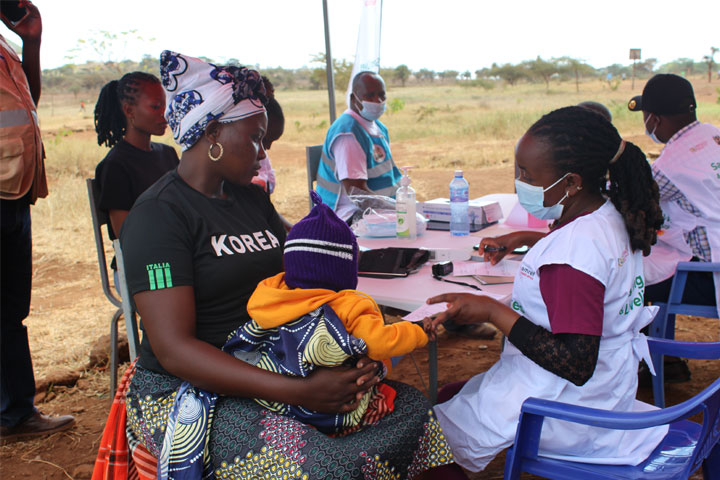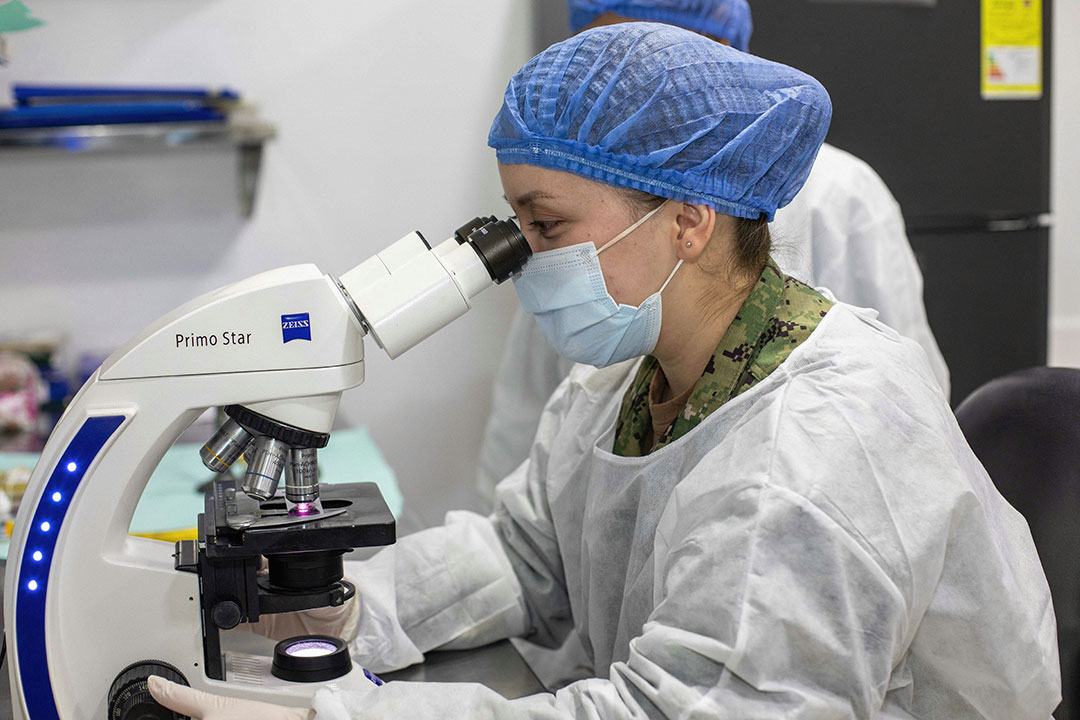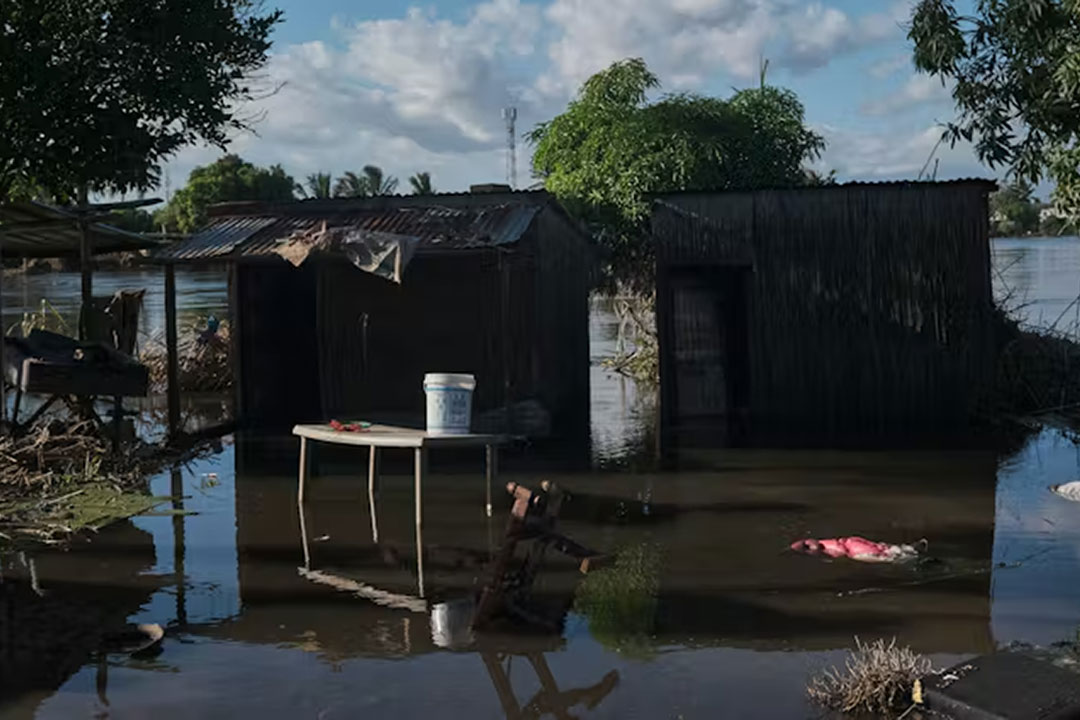In one of Nairobi’s most diverse pockets, polyglot health workers and chiefs in uniform boost vaccine uptake
Vibrant and culturally diverse, Eastleigh in the Kenyan capital has lagged behind on immunisation coverage. But a team led by Chief Josiah Kiweu is championing a change.
- 23 May 2025
- 6 min read
- by Lenah Bosibori
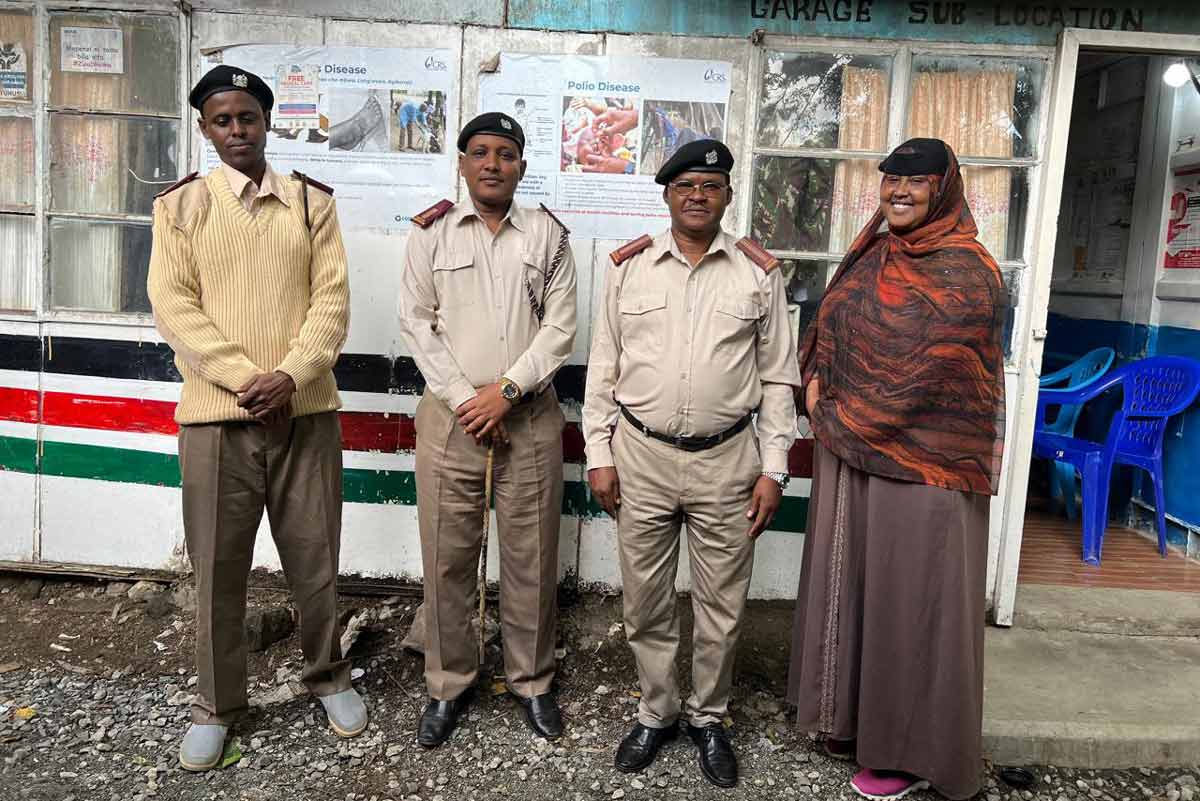
It’s early on a Friday morning in Eastleigh North, on the outskirts of Nairobi, Kenya’s capital. Already, a hot sun is beaming down on this diverse and vibrant neighbourhood – the area is home to a mix of Kenyans, refugees and other immigrants from across Africa.
Josiah Kiweu, Eastleigh North Location Chief – a local-level administrative official under Ministry of the Interior – is assembling his team for the day’s work. Today, they will visit households to monitor uptake of different vaccines. It’s routine work, but not always simple – Eastleigh has a reputation for vaccine hesitancy.
Understanding vaccination in Eastleigh
Assistant Chief Mohamed Gedi, who leads a small community centre locally known as “Garage,” tells VaccinesWork that during national vaccination drives their approach is always collaborative.
“Before we start our work, we meet with all the stakeholders in the specific community who include community health promoters (CHPs), village elders, house caretakers and Nyumba Kumi leaders,” says Gedi.
The Nyumba Kumi initiative – the phrase means “ten households” in Swahili – is a Kenyan community policing strategy that clusters neighbourhoods into units of ten homes. These units foster trust, information-sharing and security, making them a valuable structure to mobilise for community-based public health campaigns.
“We are the ones going door-to-door in the entire community reassuring people that these vaccines are safe,” Gedi explains. “We have people from the diaspora, refugees and others from different countries. Some tell us their doctors abroad advised against vaccines, which makes local awareness even more critical.”
Anti-vaccine misinformation also commonly spreads via social media, Gedi says. Local religious and community leaders hold outsize influence, he adds, making their health education critical. “Many residents treat the words of their imams or pastors as final.”
Assistant Chief Hussein Gabow, who also serves in Eastleigh North, explains that seeing officials like the chiefs and their assistants in uniform has a significant impact on reception. “We always wear our uniforms on every visit; this shows the people we visit that we are representing the government,” he notes.
Fatuma Ahmed, a community health promoter (CHP), joins him. She has just returned from the community, where she was administering cervical cancer-blocking human papillomavirus (HPV) vaccines together with Nairobi City County public health officials.
Having worked in the communities of Eastleigh North and Langata for many years, she speaks of the importance of familiarity in building bridges. “There was a lot of hesitancy at first, especially when unfamiliar health workers showed up,” she explains. “People wouldn’t even open their doors. But they see me as someone they trust and speak their language.”
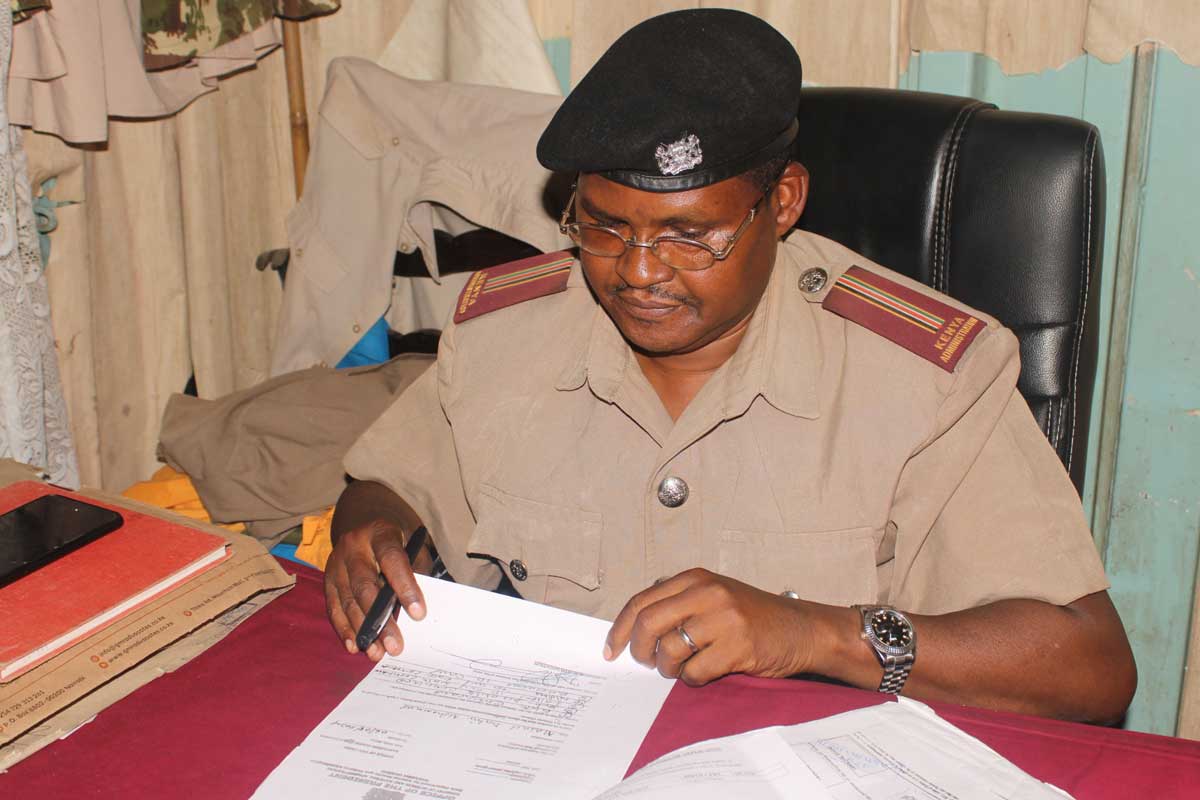
Multilingual health education
Ahmed says that when she started her work in 2012, vaccine uptake in Kamukunji constituency, which contains Eastleigh, was very low. She’s had a front-row seat on a gratifying transformation: “When I started, vaccine uptake was at 45–46%. But after I got involved, the uptake moved from third to second position out of the 17 constituencies in Nairobi.”
That still leaves room for improvement: Nairobi as a whole lags the national average. According to the 2022 Kenya Demographic and Health Survey, 80% of children aged 12–23 months nationwide are fully vaccinated. But, Nairobi County, which contains Kamukunji, lags at 46%, due largely to urban density, migration and language barriers in the sprawling capital city.
It’s those very factors that make Ahmed’s ability to speak multiple languages – Somali, Oromo, English, Garre and Rahanweyn – so valuable in her job. She says more than permitting functional communication, speaking so many languages has helped her connect and gain trust with diverse families.
She highlights the need for early education, cultural sensitivity, and trusted messengers. “Our people need to be informed at least three to five days in advance. Advertising on local TV and radio stations helps: once the chiefs speak, the community listens,” she notes.
Ahmed recalls a viral video that circulated online, broadcasting false – but frightening –information about vaccination.
“It wasn’t even from Kenya, but it caused panic. That’s why we need chiefs to hold community meetings and give accurate information.” She adds: “Illiteracy and language barrier makes it worse sometimes. Our people need a lot of education and capacity-building so that they are aware of how vaccines work, and when the [immunisation] exercise is taking place.”
Since before independence chiefs have held a place of trust with Kenyan communities. Historically, the government used chiefs to run its programmes at grassroots level, further establishing their authority within the community. According to Ahmed, this trust has been crucial in increasing vaccine uptake in the community. “The first time we did without the chiefs, the uptake was very low, but after we included them, we did marvellous work.”
“When you pass through the chiefs, the work will be smooth; they are aware of the community. If the chief has not mobilised them, some will refuse and say, we have not heard it from the chief,” Ahmed says.
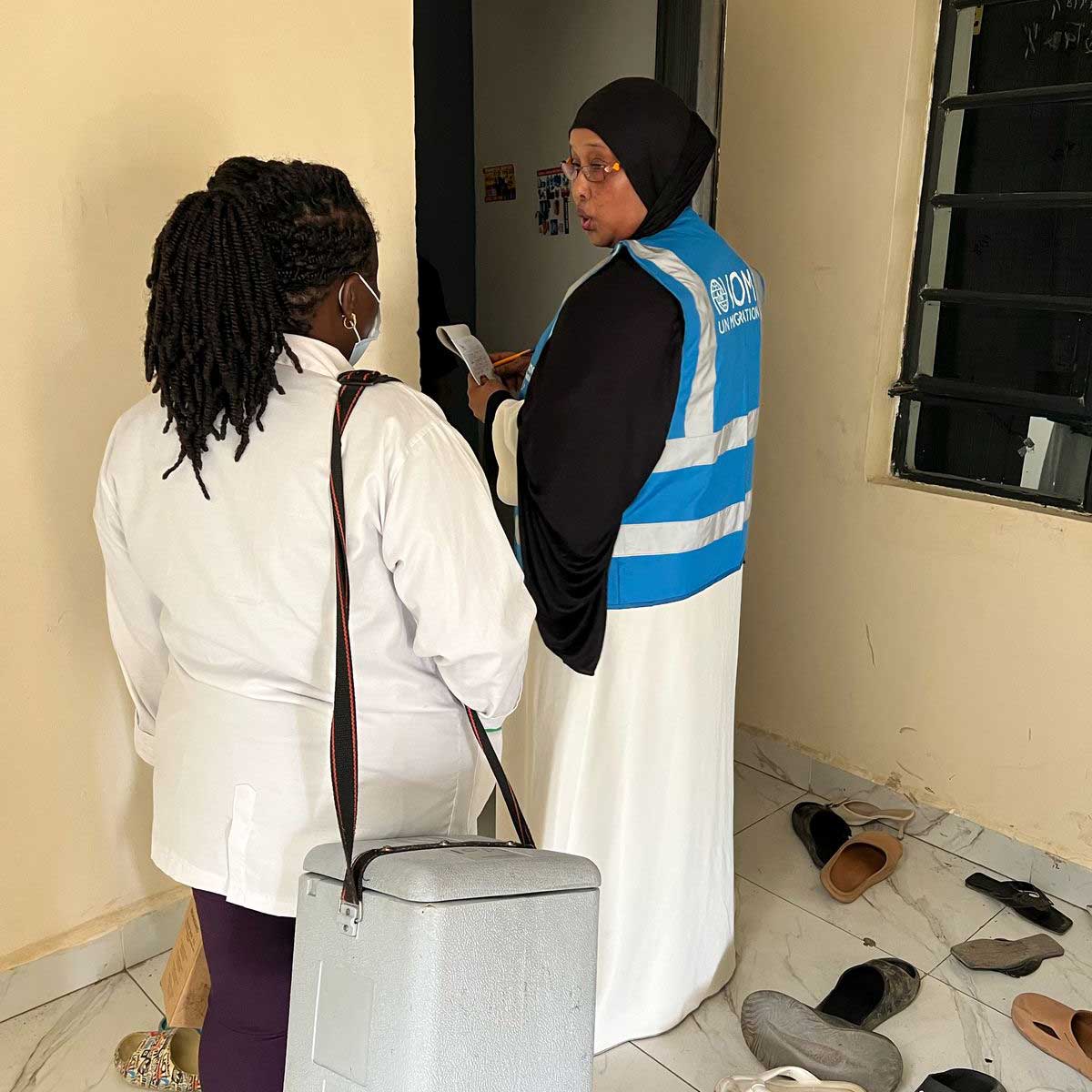
Bringing in the clergy
Ahmed adds that on Fridays they go to the mosques to make sure that the vaccine exercise is announced after every prayer. “Our chiefs know all the imams, pastors and all the religious people in our community, and as we pray all our five daily prayers, the Imam announces it in all the prayers,” she explains, adding that she also visits all local churches on Saturdays and Sundays.
Sensitivity to religious sensibilities extends beyond places of worship. “We also consider the dress code. Some CHPs are not allowed in people’s houses because of their dress code – they even refuse them to touch their children,” Ahmed explains. Luckily, there’s always back-up. “When we get stuck, we call the chief. When they see the chief, they cooperate.”
Have you read?
Shared authority
Chief Kiweu describes working closely with the Ministry of Health and local leaders to coordinate vaccine drives. Once the chief and his assistants are informed, the senior chief then convenes community sensitisation meetings involving imams, sheikhs, pastors, teachers, Nyumba Kumi leaders and caretaker managers in various buildings.
“Every household in Eastleigh has a Nyumba Kumi leader – someone they know and trust. These are our eyes on the ground.” adds Kiweu.
“If the information sharing is done effectively, it makes it easy when the vaccines are being delivered because you find that the community is already prepared and aware of the exercise,” adds Kiweu.
“When we hear of any misinformation, we dress in full uniform and respond immediately. If necessary, we escalate it to higher authorities. Our presence alone can calm fears and correct misinformation,” notes Kiweu.
But Kiweu points out that his role rests on the efforts of people like Ahmed, who constitute the base of the healthcare pyramid. “Local people like the CHPs make the vaccine uptake effective. My intervention in the supervisory makes it more trustworthy,” adds Kiweu.
More from Lenah Bosibori
Recommended for you

